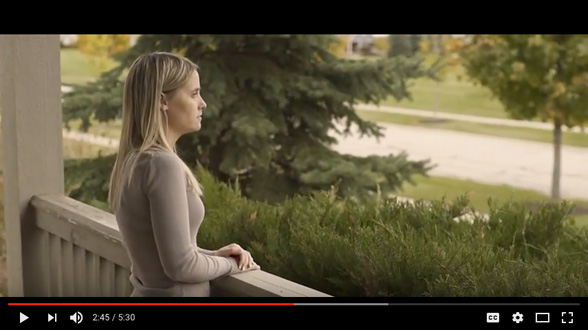Passing Erin’s Law, Bree’s Law a step toward talking about abuse in Alaska

Carey Restino The Arctic Sounder
July 18, 2015
I had a conversation with my 7-year-old daughter the other night on one of those long drives that Alaska life is filled with. I decided it was time to talk about what is OK and what isn’t when it comes to other people and your body. It’s not a topic that any parent wants to bring up, really. We’d like to think that our little boys and girls will live in a bubble, and will never face any type of aggressive behavior, let alone someone trying to abuse them. But that’s not what the statistics show. So, I took a deep breath.
“So, do you know there are places other people shouldn’t touch you?”
“Yes!”
“OK, good, so what do you do if someone tries to do that?”
“Run away!”
“That’s good. What if you can’t run away?”
Silence.
“Is it OK to shout at them?”
“Nooooo.”
“YES! You can shout at them as loud as you want! Tell them to stop as loud as you want!”
“Ohhhh.”
“And is it OK to hit them?”
“Oh, nooooo. It’s never OK to hit.”
“YES you can! If they don’t stop, you can hit them anywhere you want, especially places you know will hurt! And then run away as soon as you can!”
She grinned.
“Really?”
“Yes! But is it OK to hit a friend at school who gives you a hug because you are sad?”
“No?”
“That’s right.”
It’s the beginning of a much bigger conversation, one that we’ll have every year for a long time. But the simple fact that her body is hers and she has the right to protect it was not intuitive. And if she faced that situation, even armed with the knowledge she now has, she might not be able to fight back for many reasons. But hopefully, just feeling empowered will help make her less vulnerable.
That’s why the passage this week of the Alaska Safe Children’s Act is so important. The act is the beginning of a conversation between teachers and students about sexual assault, teen dating, teen dating violence and youth suicide, all topics that can be uncomfortable to talk about and completely off the table in many families.
But across the state of Alaska, starting in middle school, students will learn these important subjects on an age-appropriate level. Like the simple conversation with my daughter, educating children about what is OK and what isn’t helps them stand up for themselves. And while we may think the knowledge that there are people who might want to hurt them will scare them, knowledge is power. If delivered properly, these messages may save some of these children from a lifetime trying to recover.
Some legislators balked at the cost of these programs. Thank goodness that argument didn’t hold water in the eyes of the majority. Children who have been harmed in those ways more often than not need help for a long time afterward, help that often costs quite a bit. If they don’t get that help, the result is frequently worse, even, both for them, and for the greater public good. In Alaska, where statistics for sexual assault, domestic violence and child assault are alarming, we should be paying closer attention than anywhere else. We also have extremely high rates of suicide, especially among our young people. Coincidence? I think not.
It is time we started talking about these issues. Perhaps not everyone thinks it is appropriate to have a conversation with your young daughter about ways she can protect herself from predators. But we must begin conversations about these things all across the state. We must stop turning away from the uncomfortable nature of sexual assault and abuse, and must stop accepting domestic violence. Erin’s Law and the Alaska Safe Children’s Act is a first step in that direction. Let’s hope it is the beginning of a path of healing for all of us.
Carey Restino is the editor of Bristol Bay Times-Dutch Harbor Fisherman and The Arctic Sounder, where this commentary first appeared.
The views expressed here are the writer’s own and are not necessarily endorsed by Alaska Dispatch News, which welcomes a broad range of viewpoints. To submit a piece for consideration, email commentary(at)alaskadispatch.com.


